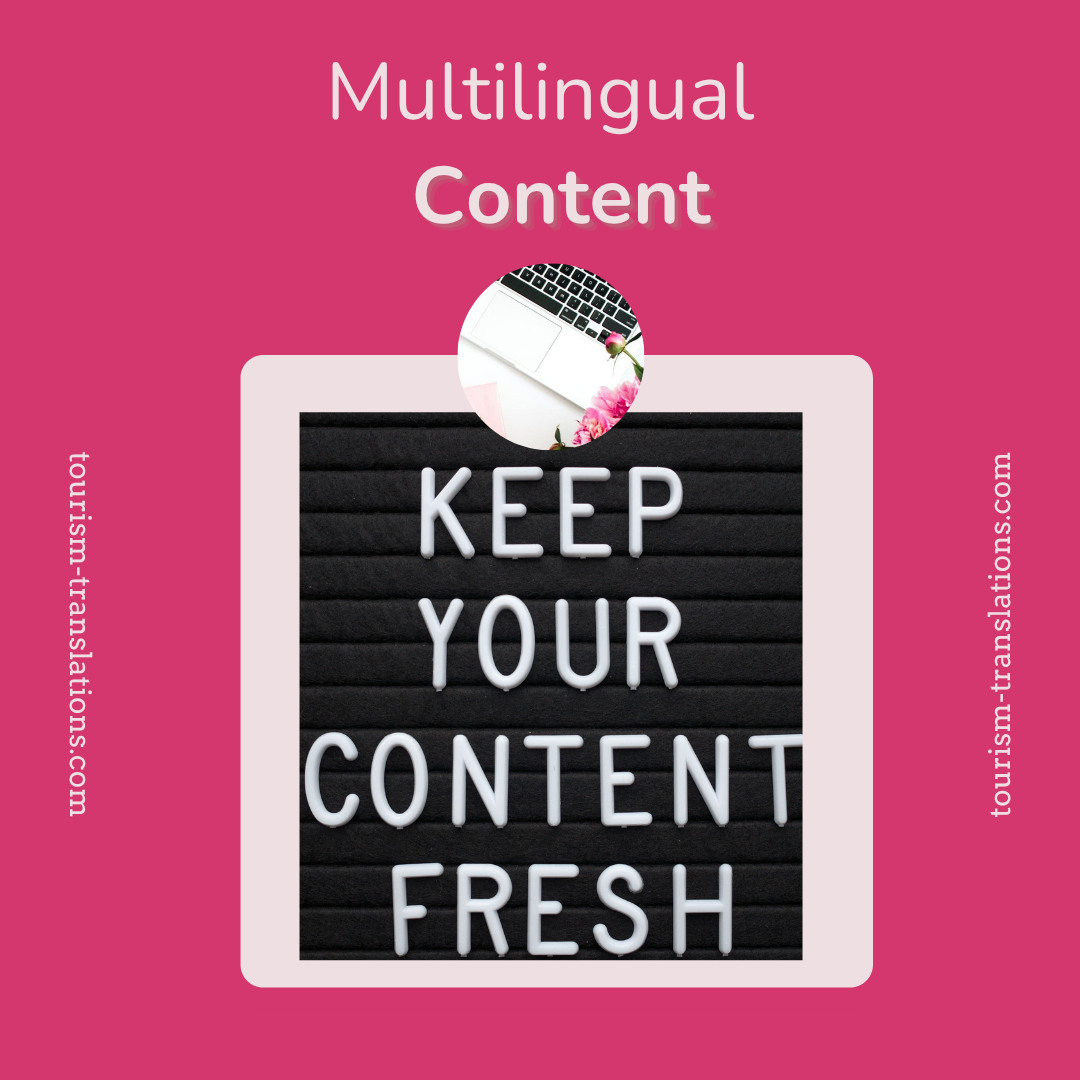Why content freshness matters in tourism translations
Tourism marketing is a moving target. Destinations evolve, seasons come and go, and guest expectations are constantly changing. Yet many tourism businesses treat multilingual content as a one-off task, translating it once and then forgetting about it. While this approach may save time or money in the short term, it comes with hidden costs. Outdated translations can confuse your audience, undermine trust and ultimately affect bookings negatively.
HUMAN TRANSLATIONTOURISMMARKETINGTIPSTRANSCREATION
10/30/20252 min read


Why content freshness matters in tourism translations
Tourism marketing is a moving target. Destinations evolve, seasons come and go, and guest expectations are constantly changing. Yet many tourism businesses treat multilingual content as a one-off task, translating it once and then forgetting about it. While this approach may save time or money in the short term, it comes with hidden costs. Outdated translations can confuse your audience, undermine trust and ultimately affect bookings negatively.
Let's break it down:
1. Translated once and never updated?
This is the classic 'set and forget' approach. A hotel or destination translates its content (menus, itineraries and website copy) once and assumes it will remain accurate forever. At first glance, this seems efficient. After all, translation can be costly, so once it’s done, why worry?
But here’s the problem: tourism is dynamic. That charming café you recommended? It might have closed last year. What about the “new spa” you promoted? Guests have already moved on. Even small details, such as room types or event schedules, can change, and providing outdated information can quietly chip away at your credibility. Once trust is lost, it’s difficult to regain – visitors are more likely to click away than call or book.
2. Occasional updates
A slightly better approach is to update content every so often. Someone checks the website or brochure every few months or seasons. While this is a step in the right direction, inconsistent updates across languages create a new problem: mixed messages.
For example, imagine your English site raves about cherry blossom season, while your German pages are still promoting Christmas markets. Or your social media highlights summer hiking trails, but your translated newsletters still mention winter ski packages. Such inconsistencies confuse travellers, damage brand credibility and can affect SEO performance if different versions of your site convey different information.
3. Synchronised content updates across languages
This is where tourism brands really stand out. Updating all language versions simultaneously ensures that every visitor sees the same accurate, engaging and inspiring content. English, German, French – whatever the language, the story remains consistent.
Synchronised updates do more than prevent confusion – they signal professionalism and reliability. Your audience understands that you care about their entire experience, not just your homepage. They see a brand that is active, informed and attentive to detail. In a competitive industry like tourism, this can mean the difference between a casual visitor and a confirmed booking.
Why does this matter?
In tourism, content isn’t just information – it’s your brand promise. Fresh, accurate and synchronised translations build trust, manage visitor expectations and improve the booking experience. Conversely, outdated or inconsistent content can quietly erode credibility, frustrate travellers, and reduce conversions.
Think of your multilingual content as a living part of your destination: vibrant, evolving and in line with real-world experiences. Updating translations is about more than just accuracy – it's about showing your audience that you understand their language, culture and desires.
✅ Takeaway:
If you haven’t reviewed your multilingual content in the last 6–12 months, now is the time to do so. Audit your website, brochures and social media channels. Make sure that the translations are accurate, culturally appropriate and consistent across languages. Investing a little time in keeping your content fresh today can lead to greater returns in terms of trust, engagement and bookings tomorrow.
👉 When did you last update your multilingual content?
#TourismMarketing #TravelIndustry #ContentMarketing #Localisation #TranslationServices #DestinationMarketing #TourismTranslations #LanguageStrategy #TravelCopywriting
© Wenke Geddert-Page/Tourism Translations, 2024–2025 – Policies: AI | Privacy Policy | T&Cs | Website Disclaimer